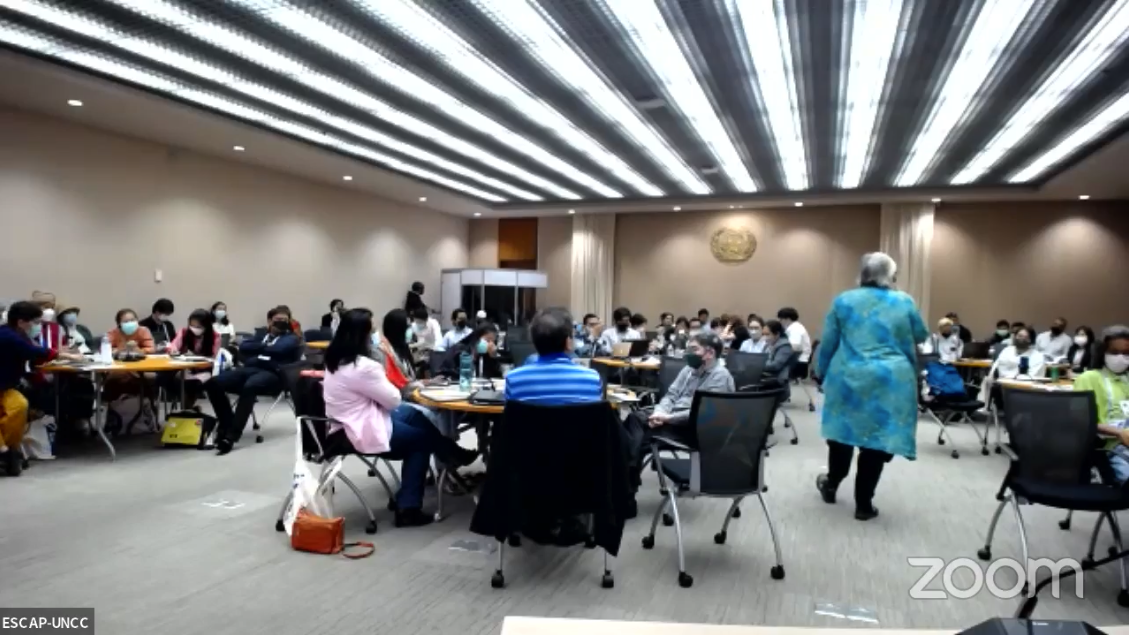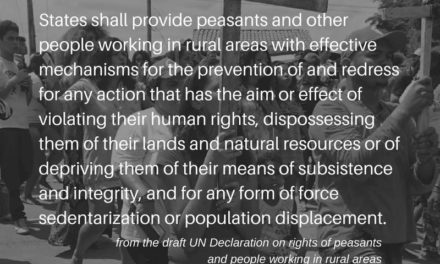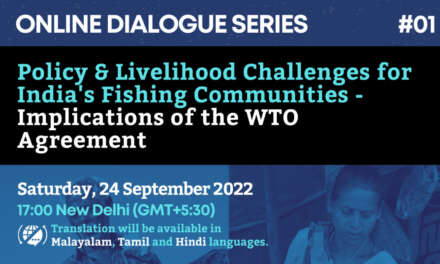The first speaker in this seminar is Mary Ann Manja Bayang, indigenous lawyer from the Philippines, explaining the history and providing an overview of the Legally Binding Instrument (LBI) on the Transnational Corporations (TNC) and human rights. This process mandates the establishment of an open-ended intergovernmental working group (IGWG) with a mandate to develop an international legally binding human rights treaty to regulate the activities of transnational corporations and other business enterprises. Manja also explains the current state of the draft treaties as well as the challenges and opportunities for CSOs in this process.
Antonio Salvador from Third World Network then introduces the the Global Campaign to Reclaim Peoples Sovereignty, Dismantle Corporate Power and Stop Impunity (Global Campaign) . The global campaign is a network of over 250 social movements, CSOs, trade unions, farmers organisations and communities who challenge the ability of TNCs to evade jurisdiction of different states. He explains that the campaign is aiming to make the TNC accountable for the human rights and environmental violations they are committing in third world countries.
Bobby Ramakant from International Network for Economic, Social and Cultural Rights (ESCR-Net) shares his experience on corporate capture in the UN. He also shares information about ESCR-Net, which brings together social movements and advocates across more than 75 countries to build a global movement to make human rights and social justice a reality for all. For more than a decade, members of the Network have been taking collective action to advance the development of the LBI as part of the IGWG process.
Debbie Stothard from ALTSEAN-Burma speaks about the Treaty Alliance, an alliance of dedicated networks and campaign groups from around the world which is mobilising for a UN Treaty to end corporate impunity and regulate corporate activities against human rights abuses and violations, as well as against environmental destruction. As part of the alliance, women feminists formed a loose group called the Feminist for Binding Treaty or #FforBT. The group is looking at the text not just from a feminist point of view but an intersectional point of view, to make sure that the text of the treaty reflects and protects the rights of indigenous women, peasant women, rural women, women workers both in the informal and formal sectors, women in LGBT groups as well as women affected by climate change and other range of corporate human rights violations.
Joseph Purugganan from Focus on the Global South talks about the political context and framing of the ATF campaign, discussing why Asian states and peoples should push for greater corporate accountability, and what can be done to strengthen and consolidate peoples movements for corporate accountability. He highlights the rising number of human rights violations and abuses and the rise of corporate power as the main challenge in the implementation of the UNGP, and also suggests the ways forward for movements pushing forcorporate accountability. Joseph’s presentation can be downloaded from here.
Sacha Feierabend from the International Federations of Human Rights (FIDH) compares the stakes of mandatory human rights due diligence versus the binding treaty. He also explains the concept of human rights due diligence and the mandatory human rights due diligence bills that are currently discussed.
The seminar further discusses emblematic cases from the countries in the region, with representatives from indigenous people, peasant and local communities voicing their concerns. If you missed the seminar, you can watch the Facebook livestream below.






![[IN PHOTOS] In Defense of Human Rights and Dignity Movement (iDEFEND) Mobilization on the fourth State of the Nation Address (SONA) of Ferdinand Marcos, Jr.](https://focusweb.org/wp-content/uploads/2025/07/1-150x150.jpg)



